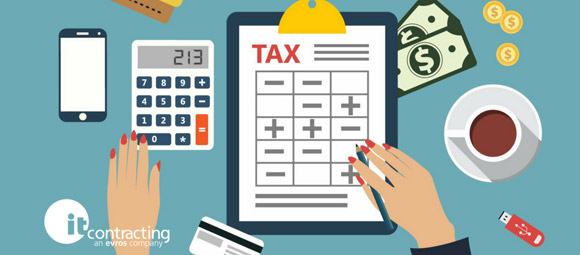
How to Become a Contractor Part Two – Key Questions Asked
We’ve explored the initial idea of becoming a contractor in our first blog, examining how to set up as a contractor and understanding the benefits of setting up your own company.
In the second instalment of itContracting‘s three-part series, Operations Director of Icon Accounting, Claire Fagan explores how much tax contractors pay and answers some of the most commonly asked questions by first-time contractors.
How much tax will I pay as a contractor?
As a contractor, the rates of tax paid will be determined by your tax credits and business expense claims.
Your tax credits are issued directly by Revenue, but for anyone who doesn’t hold a P45 for the current tax year, they’ll need to set up an online Revenue Account which is now a mandatory requirement by the Revenue Commissioners.
Business expense claims reduce the taxable income, yet it is important to note that all business expense claims must be 100% wholly and exclusively for the purposes of your contract.
Contractors should also be alerted to Employee Benefit Trusts (EBT Schemes), Pension Annuities or offshore systems, which are often advertised differently with guarantees of high retention rates.
| Standard Rate Cut-off Point | 2018 |
| Single/Widowed | €34,550 |
| Married Couple, 1 Income | €43,550 |
| Married Couple, 2 Incomes | €69,100 |
| One parent family | €39,550 |
| Tax Credits | 2018 |
| Self-employed | €1,150 |
| PAYE | €1,650 |
To check an estimation of tax and take-home pay, see the monthly online tax calculator here.
When do I pay my tax as a contractor?
If you choose to operate as a contractor under an Umbrella Company, all taxes are also paid through the PAYE system and your Umbrella Company will manage the payment of all taxes. A net payment is transferred to your Personal Bank Account and a payslip is provided to show the deduction of taxes. All taxes and deductions are taken care of on a real-time basis.
NOTE: As all taxes are deducted and paid through the PAYE system, tax is not paid in a lump sum as done under by self-assessment (sole trader).
Am I entitled to social welfare as a contractor?
Social welfare entitlements are determined by the class and number of PRSI stamps paid.
Should you need to sign on for Job Seekers Benefit, the Social Welfare Office will take into consideration your previous two years’ contributions. They will look at the number of PRSI stamps paid over 2016 to determine your eligibility.
In the case that you have not paid sufficient stamps in 2016, you may not receive the automatic entitlement for the Job Seekers Benefit. However, you can apply for Job Seekers Allowance, which is means-tested.
If you wish to pay PRSI stamps towards Job Seekers Benefit and Illness Benefit while contracting, you can do so by setting up under a PAYE Umbrella Company where you will pay Class A PRSI.
If setting up under the Director Umbrella Company or Personal Limited Company, you will pay the lower class of PRSI, which typically results in a higher take-home pay.
NOTE: Class S PRSI does not make direct contributions towards the Job Seekers Benefit.
Invalidity Pension
Good news! From December 2017, the Invalidity Pension is being extended to self-employed workers. The Invalidity Pension is a weekly payment to people who cannot work because of a long-term illness or disability and are covered by social insurance (PRSI). Contributions are paid towards the State Pension under both the PAYE Umbrella Company, Director Umbrella Company and Personal Limited Company.
To fully assess what option is best for you as a contractor, it is recommended to speak with an accountancy provider specialising in Umbrella Company/Personal Limited Company solutions. For more information, visit Icon Accounting today.
